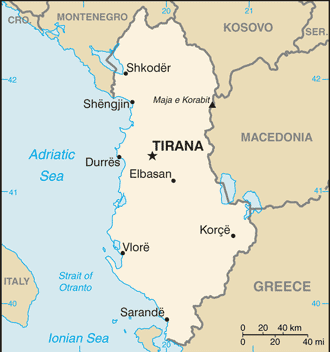 On June 26, International Day against Drug Abuse and Illicit Trafficking, China's Supreme People's Court announced with pride that a whopping 39,762 have been sentenced for drug-related offenses in the People's Republic the first five months of 2014, up more than 27% for the same period last year. The official state news agency Xinhua reported that a total of 9,168, or about 23%, were sentenced to more than five years, life imprisonment, or death. A quoted SPC official made much of a supposedly growing drug meance. "Drug-related crimes have been spreading from bordering and coastal areas to the country's inland," said deputy jurist Ma Yan. South China's Guangdong province, with its booming export zones and free-wheeling capitalism, has topped the list since 2007. Yunnan and Guangxi, bordering Southeast Asia's opium-producing Golden Triangle, also continued to report high rates of drug-related crimes. But such cases are also mushrooming in inland Chongqing and northern Liaoning, Ma said. No breakdown was provided of the substances in question, but a proporiton of the cases certainly included cannabis.
On June 26, International Day against Drug Abuse and Illicit Trafficking, China's Supreme People's Court announced with pride that a whopping 39,762 have been sentenced for drug-related offenses in the People's Republic the first five months of 2014, up more than 27% for the same period last year. The official state news agency Xinhua reported that a total of 9,168, or about 23%, were sentenced to more than five years, life imprisonment, or death. A quoted SPC official made much of a supposedly growing drug meance. "Drug-related crimes have been spreading from bordering and coastal areas to the country's inland," said deputy jurist Ma Yan. South China's Guangdong province, with its booming export zones and free-wheeling capitalism, has topped the list since 2007. Yunnan and Guangxi, bordering Southeast Asia's opium-producing Golden Triangle, also continued to report high rates of drug-related crimes. But such cases are also mushrooming in inland Chongqing and northern Liaoning, Ma said. No breakdown was provided of the substances in question, but a proporiton of the cases certainly included cannabis.

 On June 27, Massachusetts' Department of Public Health
On June 27, Massachusetts' Department of Public Health  The US Supreme Court issued a key ruling in favor of Fourth Amendment rights in the digital age June 25, finding unanimously that police in most cases need a warrant before searching the cellphone or personal electronic device of an arrestee. Chief Justice John Roberts firmly rejected arguments that searches of digital devices are comparable to searches police routinely carry out for contraband after making an arrest. In the cases of
The US Supreme Court issued a key ruling in favor of Fourth Amendment rights in the digital age June 25, finding unanimously that police in most cases need a warrant before searching the cellphone or personal electronic device of an arrestee. Chief Justice John Roberts firmly rejected arguments that searches of digital devices are comparable to searches police routinely carry out for contraband after making an arrest. In the cases of  US authorities report a record flood of unaccompanied minors crossing the southern border, a wave that has been escalating since 2011. About 52,000 have arrived since October, about 112% more than the entire prior year, Alejandro Mayorkas, deputy secretary of the
US authorities report a record flood of unaccompanied minors crossing the southern border, a wave that has been escalating since 2011. About 52,000 have arrived since October, about 112% more than the entire prior year, Alejandro Mayorkas, deputy secretary of the  Hundreds of Albanian police, backed by armored vehicles, stormed the southern village of Lazarat June 16 after cannabis growers apparently fired machine-guns, mortars and rocket-propelled grenades at officers sent in on a drug raid. Four people—a police officer and three villagers—are reported injured so far in the operation that remains underway. Smoke is reported to be rising above the village, with witnesses saying it was caused by locals burning cannabis plants before police closed in. Security forces have seized more than 10 tons of cannabis in the operation thus far. Lazarat is said to produce some 900 tons of cannabis annually, worth 4.5 billion euros ($6.1 billion)—equivalent to nearly half of Albania's gross domestic product. The village of some 5,000 people lives off the proceeds from the cannabis trade. Aerial photos suggest some 60 hectares were cultivated in Lazarat last November, amounting to an estimated half the total production of Albania. Heavily armed villagers have repeatedly fended off security forces sent in to eradicate the crop.
Hundreds of Albanian police, backed by armored vehicles, stormed the southern village of Lazarat June 16 after cannabis growers apparently fired machine-guns, mortars and rocket-propelled grenades at officers sent in on a drug raid. Four people—a police officer and three villagers—are reported injured so far in the operation that remains underway. Smoke is reported to be rising above the village, with witnesses saying it was caused by locals burning cannabis plants before police closed in. Security forces have seized more than 10 tons of cannabis in the operation thus far. Lazarat is said to produce some 900 tons of cannabis annually, worth 4.5 billion euros ($6.1 billion)—equivalent to nearly half of Albania's gross domestic product. The village of some 5,000 people lives off the proceeds from the cannabis trade. Aerial photos suggest some 60 hectares were cultivated in Lazarat last November, amounting to an estimated half the total production of Albania. Heavily armed villagers have repeatedly fended off security forces sent in to eradicate the crop.  Mexico's
Mexico's  Following
Following 





Recent comments
1 week 6 days ago
1 week 6 days ago
5 weeks 12 hours ago
5 weeks 6 days ago
10 weeks 2 hours ago
13 weeks 5 days ago
17 weeks 5 days ago
18 weeks 4 days ago
28 weeks 4 days ago
32 weeks 4 days ago